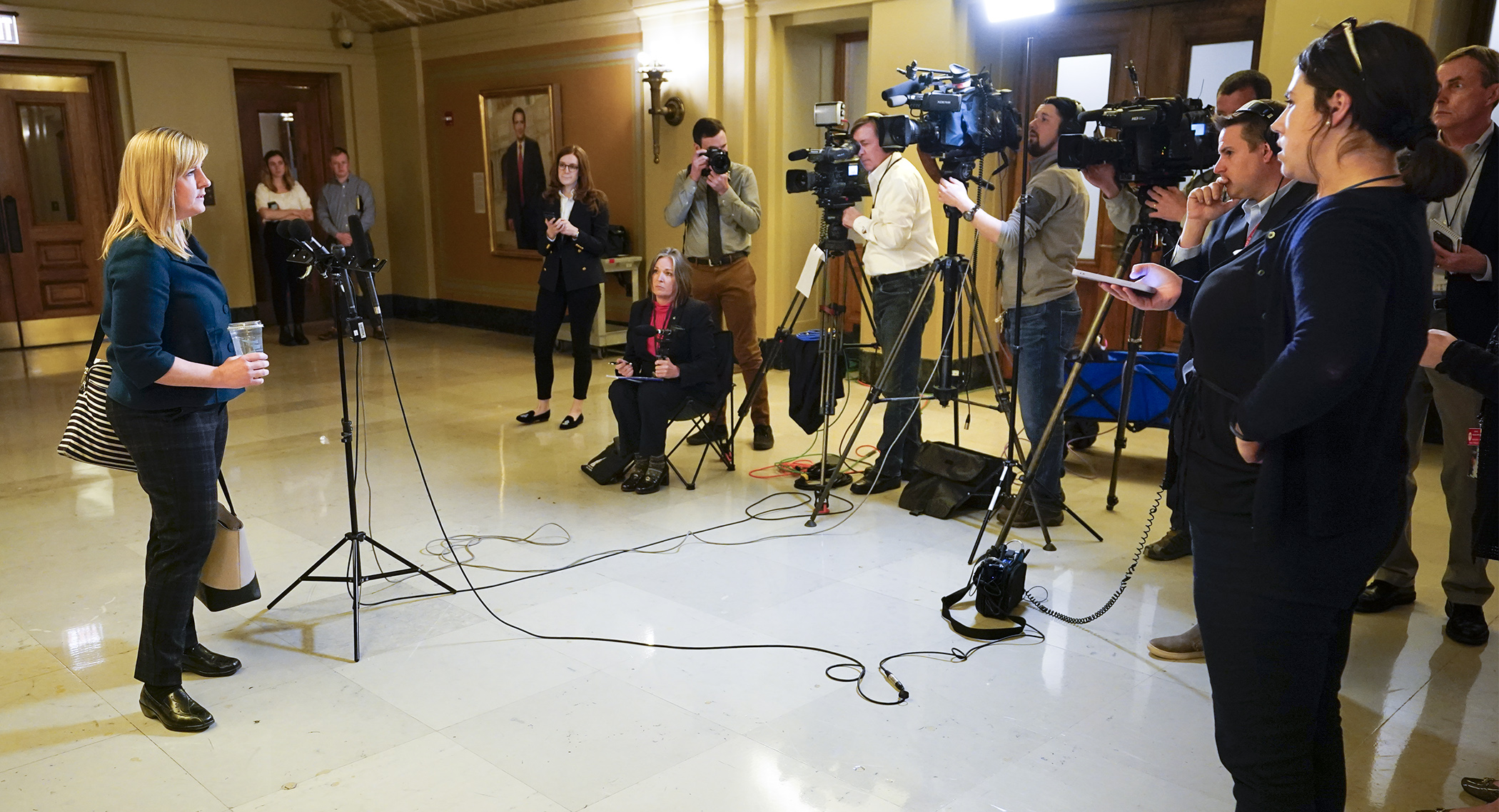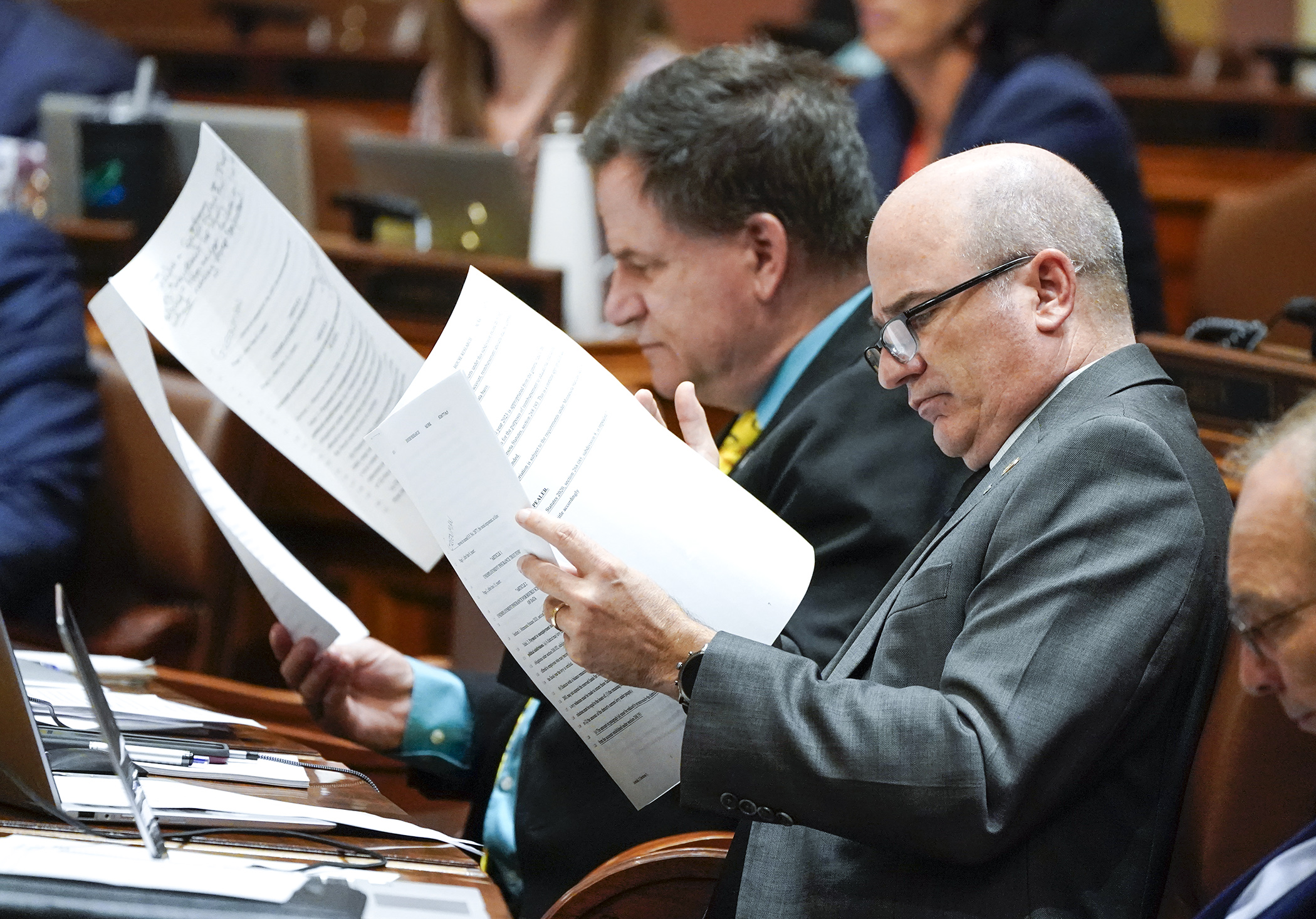House passes bill to replenish UI trust fund, provide checks to frontline workers

With a deadline looming and following a call from Gov. Tim Walz in his State of the State address Sunday, the House passed a bill Monday to replenish the state’s unemployment insurance trust fund, provide frontline worker pay for some and make hourly school workers eligible for unemployment.
“Our highest priority is ensuring that workers who were on the front lines during COVID-19 receive the bonus pay they deserve,” House Speaker Melissa Hortman (DFL-Brooklyn Park) said in a statement. She added that House leaders have been working since January to reach an agreement with Senate leaders and the governor on frontline worker bonuses and replenishing the unemployment insurance trust fund, used to partially replace wages for workers who are laid off.
The House passed HF3166/SF2677*, as amended 70-63. It now goes back to the Senate for concurrence. However, a conference committee is expected to be needed to try and work out the differences.
 Rep. John Burkel, front, and Rep. Greg Boe read over documents during debate on HF3166/SF2677*, which would, in part, replenish Minnesota’s unemployment insurance trust fund and provide frontline worker pay. The bill passed 70-63. (Photo by Paul Battaglia)
Rep. John Burkel, front, and Rep. Greg Boe read over documents during debate on HF3166/SF2677*, which would, in part, replenish Minnesota’s unemployment insurance trust fund and provide frontline worker pay. The bill passed 70-63. (Photo by Paul Battaglia)Sponsored by Sen. Eric Pratt (R-Prior Lake), the Senate passed its version 55-11 Feb. 14.
Sponsored by Rep. Gene Pelowski, Jr. (DFL-Winona), the bill would appropriate $2.7 billion to repay the federal government money borrowed to pay benefits and return the unemployment insurance trust fund to pre-COVID levels.
Without legislative action this week, employers would have to pay higher payroll taxes to replenish the fund. Bills went out in March reflecting the increase and first-quarter payments are due April 30. Any employers who have already paid the higher rate would receive a refund based on an amendment successfully offered by Rep. Mohamud Noor (DFL-Mpls).
The state fiscal recovery federal fund, connected to the American Recovery Plan Act funds, would provide $2.3 billion to replenish the fund and $410 million would come from the General Fund.
Another adopted amendment added language from HF2900, which passed off the House floor earlier this year. It would appropriate $1 billion to pay frontline workers — up to $1,500 each — who risked contracting COVID-19 during the worst of the pandemic.
Rep. Anne Neu Brindley (R-North Branch) said there are issues with the frontline workers bill, and it shouldn’t be attached to the unemployment trust fund bill.
“We should pass out a clean bill,” Neu Brindley said.
Walz said Monday it makes sense to link repayment of the unemployment insurance trust fund and payments to frontline workers. His budget proposes the $2.7 billion to return the trust fund to pre-COVID levels and $1 billion for payments to frontline workers.
Rep. Emma Greenman (DFL-Mpls) successfully offered an amendment that would end the exclusion of hourly school workers, who don’t work year-round, from receiving unemployment. It would also establish a $162 million special revenue account for school districts for those benefits.
Rep. Peggy Scott (R-Andover) objected to the amendment, saying it would result in tax increases and that bus drivers and others covered understand they are accepting part-time jobs.
Related Articles
Search Session Daily
Advanced Search OptionsPriority Dailies
Speaker Emerita Melissa Hortman, husband killed in attack
By HPIS Staff House Speaker Emerita Melissa Hortman (DFL-Brooklyn Park) and her husband, Mark, were fatally shot in their home early Saturday morning.
Gov. Tim Walz announced the news dur...
House Speaker Emerita Melissa Hortman (DFL-Brooklyn Park) and her husband, Mark, were fatally shot in their home early Saturday morning.
Gov. Tim Walz announced the news dur...
Lawmakers deliver budget bills to governor's desk in one-day special session
By Mike Cook About that talk of needing all 21 hours left in a legislative day to complete a special session?
House members were more than up to the challenge Monday. Beginning at 10 a.m...
About that talk of needing all 21 hours left in a legislative day to complete a special session?
House members were more than up to the challenge Monday. Beginning at 10 a.m...